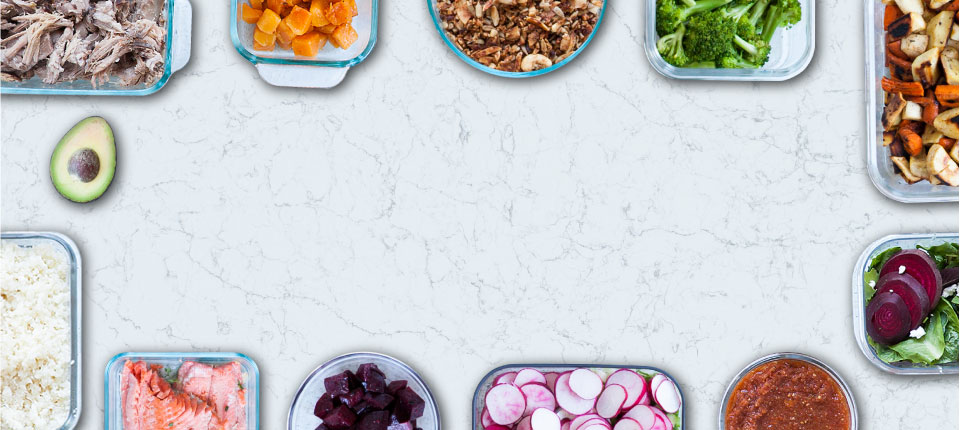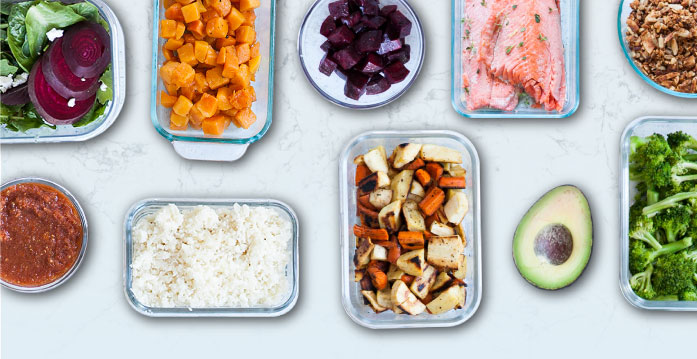Meal planning is the bane of many professionals. We’ve been there. It’s a necessary evil that ends up sucking up so much time, it gets side-lined. This leads to fewer successful treatments as clients become lost in a sea of recipes and don’t know where to start. It quickly leads to despair and shame for lack of follow-through of the plan the professional has given them.
Registered dietitians are a highly educated group of people. Whether based in Alaska or New Mexico, running clinical or therapeutic practices, they have a formidable grasp on what food we should be putting into our bodies – no matter how far from the path of health and vitality their client has strayed. However, many practitioners miss a trick when it comes to leveraging revenue in their business.
The main source for new business is referrals, whether from fellow professionals or previous clients. And referrals are rooted in the magic words, ‘they helped me, they can do the same of you’. And helping someone is no picnic. The zeal in the referrer’s twinkling eyes speak not just of the initial transformation, but the on-going feeling of hope and optimism based on a return to long-term health.
How did that client reach that lofty goal? And more importantly, what protocol or steps did the professional take to get them there?
A correct diagnosis is obviously a good start. Matching symptoms to a nutritional profile is a given. But how do you create a formula for bringing each client from initial diagnosis to referring everyone they know? If a client’s nutrition is broken, it needs to be fixed over a period of time for the body to heal itself. Meal planning would seem an obvious answer. It gives the client a pragmatic approach to changing their food habits. Yet meal planning falls short in practice for many reasons: the plans are not personal enough, they don’t fit the weekly budget or the rest of the household refuse to each the modified diet. To combat all this the professional goes that extra mile and curates a bespoke plan, yet it still falls short. Client does not get better, and thus, there are no referrals.
Here are some basic tips to ensure a meal plan will work for the majority of your clients.
- Be inclusive – ensure the plan takes into account ‘real life’ factors. Does the client live in a household with other people? If so, ensure the plan has sufficient serving sizes to include everyone. No one want to go shopping for double the meals in a given week (one set for their new diet and the other for everyone else). You can create plans that custom fit any household size – whether that’s 1 person or 7.
- Be practical – the plan must only include recipes that the client can actually cook. There are many factors to consider: the skill level of the cook, their equipment (slow cooker, air fryer, etc) and budget. Keep things simple.
- Be delicious – no matter the protocol, even super-restrictive ones, create a plan that comprises delicious recipes. With a little imagination, you can truly spark appetites with the right suggestions.
- Be current and culturally appropriate – Consider your audience when compiling your plan.
Real Plans Pro answers many of the above problems with a simple intake system for each client. It reduces the professional’s time per client, but greatly increases the level of personalization. After answering the various questions for a particular client, the software will create custom plans for weeks or months depending on the treatment plan. This leaves the professional free to focus on everything else. But more importantly, it supports the client toward their health goals over a long period. It inspires them to cook in a new way that serves their body and mind.
To encourage long-term health, our software has an affiliate program that pays commissions for previous clients who continue to pay for their account with Real Plans. A monthly payment is made to professionals for all active clients, for the lifetime of their subscription. This offsets the subscription cost of Real Plans Pro and everyone wins.
The software sets itself apart from other meal planning systems for professionals as it caters to both online and offline clients. An easy to use mobile app is available to all clients but not everyone prefers technology in their kitchen. Therefore, a comprehensive tool for self-branded PDF meal plans is included in the subscription.
No two clients are the same. And thus, no one meal plan will work for everyone. A well-crafted set of meal plans might be just the answer to turn every client into a referral.


